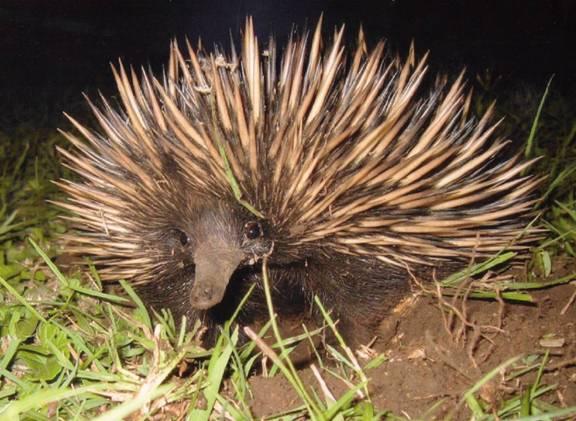Echidnas more vulnerable during our cooler months

Echidnas are seen occasionally in the Scenic Rim in open eucalypt forest or on grazing land where logs or shrubs provide shelter. This special creature is the only other living monotreme in the world alongside the platypus.
At this time of year, we are seeing echidnas more often than usual. The cooler weather brings them out earlier in the evenings to forage for food.
Unfortunately, this makes them more vulnerable to misadventure and injury on our roads. Injuries can be hidden beneath an echidna's thick layer of spines and more serious than we realise because echidnas do not vocalise. Sometimes an echidna will move off a road with hidden life-threatening injuries.
Damage to an echidna's beak is the most common road trauma injury and very serious. While it is not easy to detect without an x-ray, a broken beak can swell quickly and prevent an echidna from breathing. If left untreated, an echidna may suffocate or starve to death as the receptors in its snout can be damaged, preventing it from finding food.
If you do find an echidna on a road, take care to remove it from danger by:
- Placing a hand under its belly and behind its front legs.
- Keeping a pair of leather gloves in your vehicle, or an old towel which can be folded over and wrapped around an injured animal, is a good idea.
If you are transporting an injured echidna to care:
- Hold it in the towel or put it into a deep container such as a bin to prevent the animal from wedging itself in a small crevice in your vehicle.
- If you are able, transport the echidna to a vet.
Organisations that can assist:
Phone Wildcare on: 5527 2444
Queensland Parks and Wildlife Service
Phone QLD Parks and Wildlife Service on: 1300 130 372
Phone RSPCA QLD on: 1300 ANIMAL
These organisations can be contacted for more information. Describe the animal, what has happened to it, where and when you found it and the condition it appears to be in.
